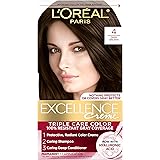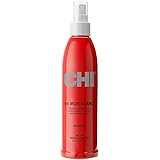Introduction to Rapid Detoxification
Rapid detoxification refers to a set of methods designed to facilitate the quick cleansing of the body from toxins, substances, or pollutants that may negatively impact overall health. These methods cater to individuals seeking immediate results in detoxifying their system, often for reasons related to health improvement, weight loss, or increased mental clarity. The modern lifestyle, characterized by fast-paced living and exposure to various harmful substances, has led many to consider rapid detoxification as a solution to enhance their well-being.
People may pursue detoxification for various reasons. Some individuals are motivated by the desire to reset their health after periods of unhealthy eating, alcohol consumption, or exposure to environmental toxins. Others may focus on achieving weight loss through detox programs, which promise quick results by eliminating excess water weight and reducing bloating. Additionally, many believe that detox methods can lead to improved cognitive function and sharper mental clarity, an appealing aspect for those feeling mentally fatigued.
Various rapid detox methods are available, ranging from dietary changes, such as juice cleanses and herbal supplements, to more structured programs that may involve detoxification clinics. While some methods emphasize fluid intake to facilitate the elimination of toxins, others may utilize specific food combinations known for their cleansing properties. It is important to approach these methods with caution; while quick fixes may seem appealing, they should be grounded in a comprehensive understanding of bodily functions and nutrition.
As detoxification continues to gain popularity, it becomes crucial to discern between effective, safe practices and those that may potentially harm health. Individuals looking to cleanse their bodies quickly should prioritize knowledge and consult healthcare professionals to tailor a detox strategy that aligns with their personal health goals.
Understanding the Body’s Natural Detoxification System
The human body is equipped with a sophisticated and inherently capable detoxification system designed to eliminate toxins and maintain overall health. This system relies on several key organs, each playing a vital role in the process. The liver, often regarded as the body’s primary detoxification organ, is responsible for filtering harmful substances from the blood. It processes these toxins into less harmful compounds that can be eliminated through bile or urine.
Equally important are the kidneys, which filter waste products and excess substances from the bloodstream. Through the formation of urine, the kidneys help to regulate electrolyte balance and remove toxins, making them crucial to the body’s detoxification process. The lungs also contribute by expelling airborne toxins and carbon dioxide during respiration. This continuous process ensures that harmful substances do not accumulate in the body, aiding in overall respiratory health.
The skin, the body’s largest organ, plays a significant role in detoxification through sweat. Sweating helps to excrete certain toxins, including heavy metals and other waste products. Additionally, the digestive system contributes to detoxification by breaking down food and facilitating the elimination of indigestible substances, thus preventing toxicity from food residues.
Each of these organs works cohesively to create a comprehensive detoxification network, showcasing the body’s capacity to cleanse itself naturally. However, it is important to note that various factors such as diet, lifestyle, and environmental exposures can affect the efficiency of these detox processes. Understanding how the body’s natural detoxification mechanisms function lays the foundation for exploring how rapid detox methods can support or enhance these essential processes, helping individuals achieve optimal health and well-being.
Different Types of Rapid Detox Methods
Rapid detox methods have gained popularity for their purported ability to cleanse the body swiftly and efficiently. These techniques are often sought after by individuals aiming to eliminate toxins, promote weight loss, and enhance overall health. Among the various rapid detox methods, juice cleanses, herbal detox teas, fasting, and specialized diets are the most commonly employed.
Juice cleanses involve consuming only fruits and vegetables in liquid form for a specific period, typically ranging from a few days to a week. This method eliminates solid foods, which may contribute to a rapid cleansing effect by giving the digestive system a break and flooding the body with essential vitamins and minerals. Proponents argue that juice cleanses can improve digestive health and increase energy levels.
Herbal detox teas are another option, often made from a blend of natural herbs known for their detoxifying properties. Ingredients such as dandelion root, ginger, and peppermint are popular choices that may assist in enhancing digestion and elimination processes in the body. These teas are typically consumed daily, supporting the liver and kidneys in their natural detoxification functions.
Fasting, whether done intermittently or for extended periods, is a method that restricts food intake for specific intervals. This can lead to cellular repair and may help in the processes of detoxification, as the body can redirect energy towards removing toxins rather than digesting food. The efficacy of fasting varies among individuals, and it is essential to approach it with caution and possibly under professional guidance.
Lastly, specialized diets such as the Mediterranean or ketogenic diets can also serve as rapid detox methods by focusing on whole, unprocessed foods. These diets promote the consumption of nutrient-dense foods while eliminating refined sugars, unhealthy fats, and additives, contributing to a healthier body environment.
Pros and Cons of Rapid Detoxification
Rapid detoxification has gained considerable popularity among individuals seeking immediate results in cleansing their bodies. One significant advantage of these methods is the speed at which they can deliver results. Unlike traditional detox programs that may take several days or weeks, rapid detox methods often promise noticeable changes within a short time frame. This immediacy is appealing for those who may need a quick cleanse, whether for personal reasons or before an event.
Ease of implementation is another benefit of rapid detoxification. Many programs offer simple protocols involving easily accessible ingredients or over-the-counter detox supplements, making it convenient for users to begin their journey without extensive preparation. Furthermore, some methods may require no more than dietary changes, adding to their attractiveness. Users frequently report feelings of increased energy and mental clarity shortly after commencement, which can further motivate them to continue these detox practices.
However, rapid detoxification is not without its drawbacks. One of the primary concerns is the risk of side effects. Rapid methods can be intense and may lead to significant changes in hydration levels, electrolyte balance, and nutrient intake, which can affect overall health. Common side effects reported include headaches, fatigue, and digestive disturbances, raising questions about the safety of these practices for some individuals, particularly those with pre-existing health conditions.
Moreover, while rapid detox methods may provide short-term benefits, they may not yield lasting results. Many users find that once the detox phase is complete, the return to previous eating habits leads to a reversion of their initial gains. This transient nature of rapid detoxification can be misleading and warrant cautious consideration for those looking for sustainable health improvements. Balancing the pros and cons is crucial when considering rapid detox methods as part of a broader health regimen.
The Role of Hydration in Detoxification
Hydration plays a crucial role in the detoxification process, acting as a fundamental mechanism to support the body’s natural ability to cleanse itself. Water is essential for various bodily functions, and during rapid detox methods, its importance is amplified. Adequate water intake facilitates numerous physiological processes that contribute to efficient detoxification.
One of the primary functions of water in detoxification is its role in flushing out toxins. The kidneys, which are responsible for filtering waste products from the blood, require sufficient hydration to effectively perform their function. When the body is well-hydrated, the kidneys efficiently expel toxins through urine, preventing the accumulation of harmful substances. Conversely, dehydration can lead to reduced kidney function, increasing the risk of toxin buildup and hindering the detoxification process.
Additionally, proper hydration aids in digestion and supports the liver’s capacity to metabolize and eliminate toxins. The liver is a key organ in detoxification, and when adequately hydrated, it is better equipped to process and neutralize harmful substances, contributing to overall body health. Water also assists in the digestion of food, promoting the absorption of nutrients and further supporting the body’s cleansing mechanisms. Hydration helps maintain optimal blood circulation, which is vital for transporting nutrients and oxygen to cells while removing waste materials.
Moreover, hydration enhances cellular function and promotes skin health, which can be particularly beneficial during a detox regimen. As the body expels toxins, adequate water intake helps keep the skin hydrated and supports its role as a natural barrier against pollutants and toxins. Drinking sufficient water, especially during rapid detox methods, bolsters these health benefits, leading to an overall improvement in well-being.
Dietary Considerations and Supportive Foods
When embarking on a rapid detox regimen, dietary considerations play a crucial role in enhancing the effectiveness of the process. To support the body’s natural detoxification pathways, particularly the liver and kidneys, it is essential to incorporate nutrient-rich foods into the diet. Fruits and vegetables, for instance, are packed with vitamins, minerals, and antioxidants that can bolster these functions. Cruciferous vegetables such as broccoli, kale, and Brussels sprouts are especially beneficial; they contain compounds that aid liver enzyme activity and promote efficient detoxification.
In addition to vegetables, fruits such as berries, apples, and citrus fruits provide ample fiber, which supports digestive health and helps eliminate toxins from the body. Whole grains, like quinoa and brown rice, can also contribute beneficial amounts of fiber and nutrients while being easily digestible during a detox phase. Furthermore, incorporating herbal teas—especially those including dandelion, milk thistle, or ginger—can enhance liver function and promote elimination.
While it is important to focus on supportive foods, it is equally crucial to avoid certain items that could hinder detox efforts. Processed foods, high-sugar products, and those rich in unhealthy fats can burden the liver and kidneys, making it more challenging for the body to cleanse effectively. Additionally, alcohol and excessive caffeine should be limited or eliminated during a detox, as they can contribute to dehydration and impede the detoxification process.
Through careful dietary considerations, one can create a supportive environment for the body’s natural detox mechanisms. By integrating nutrient-dense foods while steering clear of harmful substances, individuals can enhance their rapid detox methods and promote overall well-being.
Safety Considerations and Medical Advice
When contemplating rapid detox methods to cleanse the body, it is crucial to prioritize safety and ensure that such practices do not jeopardize your health. Rapid detoxification can offer quick relief; however, it potentially carries several health risks, particularly for individuals with pre-existing medical conditions. Failure to acknowledge these risks may lead to dangerous consequences.
Individuals suffering from chronic illnesses, such as heart disease, diabetes, or liver disorders, must exercise extreme caution and consult with a healthcare professional prior to initiating any detox regimen. These conditions can heighten the likelihood of complications resulting from rapid detoxification, including electrolyte imbalances or dehydration. Moreover, some detox methods may contraindicate with medications that individuals may already be taking, further intensifying the risk of adverse effects.
Additionally, pregnant or nursing women should refrain from engaging in rapid detox practices without professional guidance, as the implications for both maternal and fetal health remain inadequately studied. Children and elderly populations are also at increased risk due to their varying physiological responses. Therefore, seeking medical advice in these circumstances is imperative.
It is essential to acknowledge that not all detox methods are scientifically validated. A healthcare provider can offer tailored recommendations based on individual health profiles, leading to safer and more effective detox strategies. Adequate hydration and nutrition should remain priorities, as many detox plans can inadvertently lead to nutrient deficiencies or imbalances.
In conclusion, understanding the importance of consulting a healthcare professional before attending to rapid detox methods is vital for safeguarding your health. By evaluating personal health conditions and potential risks, a medical expert can help determine the most appropriate approach to cleansing the body effectively and safely.
Personal Experiences and Testimonials
Many individuals have shared their personal experiences regarding rapid detox methods, showcasing both the effectiveness and challenges associated with these processes. One individual, who underwent a three-day detox using a juice cleanse, reported feeling invigorated and lighter by the end of the regimen. They indicated that the initial days were challenging due to cravings and emotional adjustments, but found that after committing to the process, they experienced heightened energy levels and clearer skin. This positive outcome inspired them to incorporate more whole foods into their daily diet, shifting their lifestyle towards healthier choices.
Another testimonial from a participant in a guided detox retreat emphasizes the role of support and community during the detoxification process. This individual noted that the group atmosphere was instrumental in maintaining motivation and accountability. The structured environment allowed them to explore various detoxifying methods, including herbal teas and meditation practices, contributing to both physical and mental clarity. The participant highlighted that while detoxing, they discovered a deeper connection to their body, appreciating its feedback during the process.
Conversely, a more cautionary tale came from someone who attempted rapid detox through intense fasting. They reported feeling disoriented and fatigued after the first few days, leading them to discontinue the regimen. This individual stressed the importance of listening to one’s body and suggested that those interested in rapid detox methods should consult healthcare professionals before embarking on such plans. Overall, testimonials highlight the diverse experiences people encounter with rapid detoxification, emphasizing the need for individual consideration and well-informed decisions. The spectrum of results showcases that while many find success, others may face challenges that necessitate a more tailored approach to detox methods.
Conclusion and Final Thoughts
In reviewing the various rapid detox methods presented throughout this blog post, it becomes evident that while these approaches may offer immediate benefits, they are not a one-size-fits-all solution. Different individuals may experience varying levels of effectiveness depending on their unique health conditions, lifestyle, and dietary habits. It is crucial for individuals seeking to cleanse their bodies quickly to understand that rapid detoxification is just one aspect of a broader health journey.
Many rapid detox methods, such as juice cleanses, sauna therapy, and herbal detox products, can provide short-term relief and a sense of rejuvenation. However, they should not serve as a substitute for long-term, sustainable health practices. A balanced diet rich in whole foods, regular physical activity, and adequate hydration are essential components of maintaining overall wellness and ensuring that the body functions optimally.
Furthermore, individuals considering rapid detoxification should consult healthcare professionals before embarking on any significant changes to their regimen. This advice becomes particularly pertinent for those with existing health conditions or those taking medication. Each person’s body reacts differently; thus, what works for one may not work for another. Ultimately, it is vital to listen to one’s body and make informed choices that align with personal health goals.
In summary, while rapid detox methods can contribute to a sense of well-being and may offer immediate results, they should be approached with caution. Emphasizing long-term health over quick fixes will more effectively promote lasting vitality and wellness. Prioritizing sustainable health practices is key to supporting the body’s natural detoxification processes and fostering overall health in the long run.






